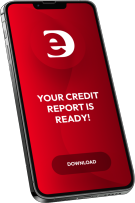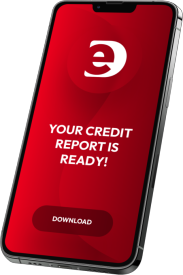Big news! We have rebranded from Creditinfo to EveryData Guyana!
We are pleased to inform you that our company name has changed. With effect from December 7, 2022, Creditinfo Guyana is now EveryData Guyana.
.png?width=640&height=960&name=phoneSmall_2x%20(1).png)
.png?width=908&height=1364&name=phoneBig_2x%20(1).png)


How to get your free credit report
If you are 18 years of age or older, you are entitled to one FREE copy of your credit report at any time during a calendar year. Pulling this FREE copy enables you to confirm your credit status and validate the accuracy of all the information reported by the institution(s) to which you have your exposures.
Our Solutions for your Business
Credit Reports
The Report Plus is the most comprehensive report which includes our AI based Credit Scoring. It includes credit information from the Credit Information Providers and information about inquiries made on a subject. It allows the customer to assess the repayment capabilities and view the record of repayments on previous and current loans.
Digital Lending Platform LoanBox
LoanBox is a digital lending solution that streamlines the loan application process and provides personalized loan options using advanced technology. It eliminates the need for in-person visits to a bank or lender, allowing borrowers to apply and track their loans online.
Advisor Batch Analytics
Introducing Advisor Batch Analytics - the ultimate solution for financial institutions looking to gain valuable insights and improve risk management. Our powerful tool scans the credit bureau database, analyzing your institution's portfolio to identify new marketing opportunities and data for collection.
Benchmarking Market Insights
Benchmarking is a suite of reports, graphs, and statistics by EveryData which can show the Subscriber’s performance across the key measures for sales activity and delinquency relative to the industry. It gives insights on the general market performance, and comparison of selected institution against its peers.
Monitoring Alerts
Your customers’ credit status constantly changes, by monitoring these changes; you can make more informed business decisions or identify new opportunities. With EveryData’s Monitoring Service, you can enhance your risk management processes, protect yourself from losses and increase low risk sales. You will be notified of changes to the customer profile and proactively make optimal business decisions.
Scoring Decision Engine IDM
Bringing decision-making in financial institutions to a whole new level of efficiency, velocity and reliability. The Decision Engine provides fully automated workflow with connectivity to different information sources in order to pull the data and, subsequently, send this data through a generic or custom-made analytical strategy to generate a summarised, customisable report, containing automatically calculated ratios, applied policy rules, recommended credit limits and more.
